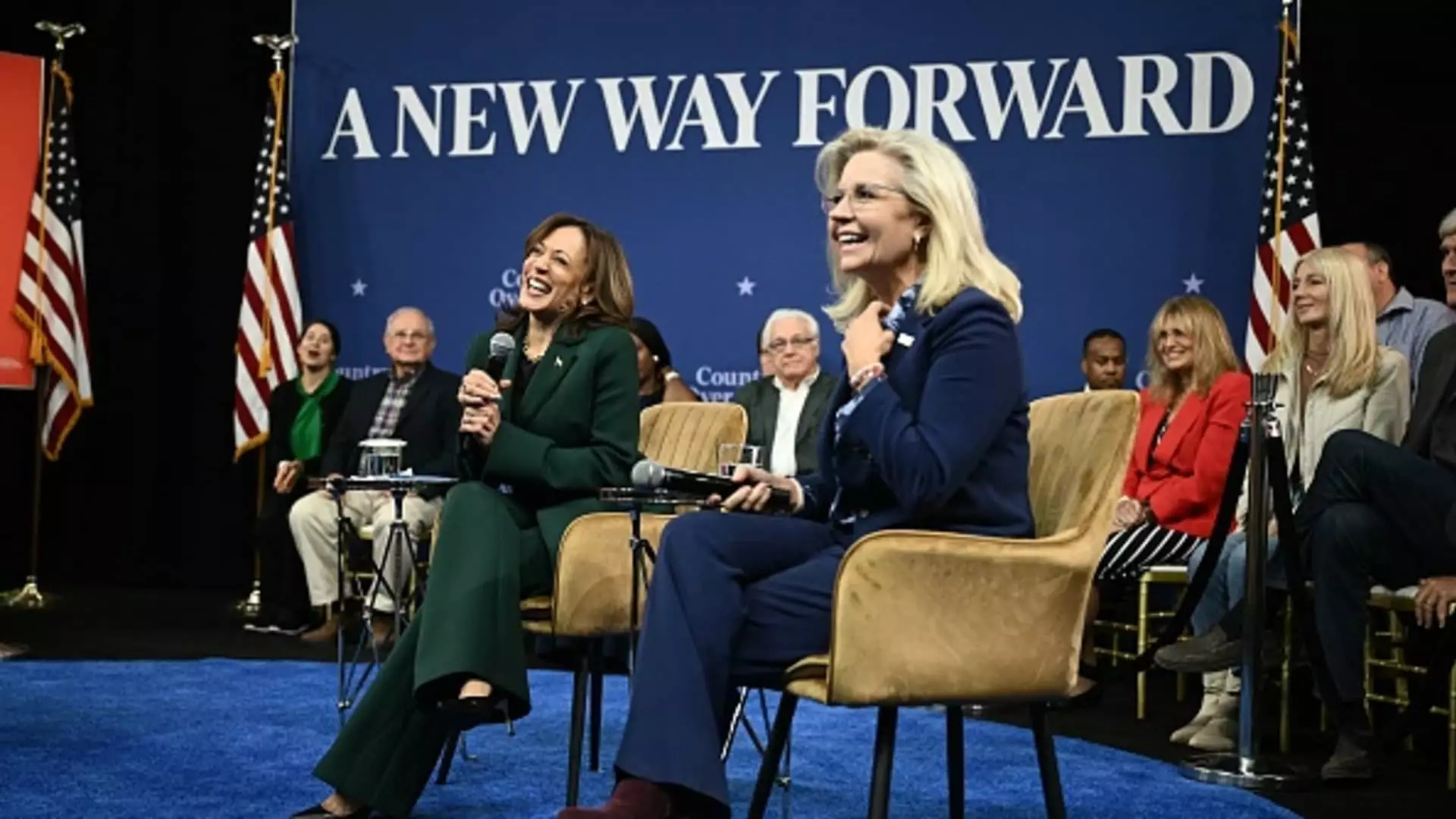In an unexpected twist in the political landscape, Vice President Kamala Harris and former Republican Representative Liz Cheney joined forces for a series of discussions in key battleground states, namely Pennsylvania, Michigan, and Wisconsin. The initiative has drawn attention not merely for its unusual pairing but also for its broader implications concerning party politics, electoral behavior, and the navigation of contemporary moral dilemmas in governance. Cheney’s statements echoed a pressing sentiment among numerous voters: that moral integrity transcends partisan allegiance.
Cheney emphasized the importance of voting one’s conscience, suggesting that many Republicans could break away from traditional voting patterns come November while keeping their choices private. Her assertion underscores not only the strains within the Republican Party, exacerbated by former President Donald Trump’s influence, but also a growing realization among some conservatives that the stakes of the upcoming election reach far beyond party affiliation.
Cheney’s strong endorsement of Harris was rooted in her belief that adherence to the Constitution is paramount—a value she argues is sorely lacking in Trump’s approach. By positioning the election as a choice between a constitutionally grounded candidate and Trump, Cheney seeks to galvanize a faction of disillusioned Republicans who might otherwise feel cornered into backing the former President. This ideological fracture within the GOP reflects a broader national reckoning, where party loyalty is being placed under the microscope in favor of ethical governance.
The former congresswoman articulated discontent with draconian restrictions on reproductive rights—issues intensified since the Supreme Court’s overturning of Roe v. Wade. Such laws, she argues, threaten the very fabric of American democratic principles, reducing women’s rights to health care and autonomy. This nuanced stance aligns Cheney more closely with Harris, who has championed women’s rights and demonstrated commitment to preserving reproductive options, further solidifying her appeal to moderate conservatives.
In an attempt to quantify support from disenchanted Republicans, the Harris campaign launched the “Republicans for Harris” initiative. This strategy not only aims to attract those uncertain about Trump but also illuminates a significant shift in political dynamics—where cross-party endorsements could play a pivotal role in upcoming elections. Cheney finds herself in the unusual position of being a bridge between traditional conservative values and a Democratic agenda that seeks inclusivity and cooperation across the aisle.
Harris’s declarations about the necessity of a robust two-party system resonate with both Cheney’s and her campaign’s objectives, framing their joint effort as one that ultimately seeks the public’s well-being. By inviting diverse perspectives, Harris underscores that governance requires collaboration rather than isolation, a declaration that elicited applause from supporters during their events.
Onlookers observed Cheney’s poignant critique of Trump’s foreign policy, denouncing it as antithetical to Republican ideals and damaging to national security. Her warnings over potential NATO dissolution reflect a critical understanding of America’s role in global affairs—a stance starkly in contrast to Trump’s isolationist rhetoric. Cheney’s assertions highlight the existential risks the nation faces if it turns inward, a path she vehemently argues could undermine alliances that have safeguarded American freedoms for decades.
In Cheney’s view, maintaining alliances isn’t merely a matter of diplomatic niceties; it is fundamentally linked to America’s moral and strategic standing in the world. She has repeatedly criticized Trump’s troop withdrawal strategies in conflict zones, labeling them disastrous and short-sighted. This concern for a knowledgeable foreign policy aligns her position with Harris, particularly as both leaders emphasize the importance of stability in Europe, specifically regarding the ongoing conflict between Ukraine and Russia.
As the 2024 election cycle intensifies, the discourse surrounding Kamala Harris and Liz Cheney serves as a harbinger for possible shifts in voter behavior. Their collaboration exemplifies a growing faction of Americans who prioritize principles over partisanship, revealing an appetite for leaders who dare to confront challenging issues regardless of their party label.
In an epoch where political extremism runs rampant, the alliance formed by Harris and Cheney may not just challenge the status quo but also encourage established party lines to reconsider their positions and priorities in the face of a complex, evolving national identity. In this narrative of collaboration amidst discord, there lies a crucial opportunity for healing divisions, paving the way for a political landscape that is as inclusive as it is robust.


Leave a Reply